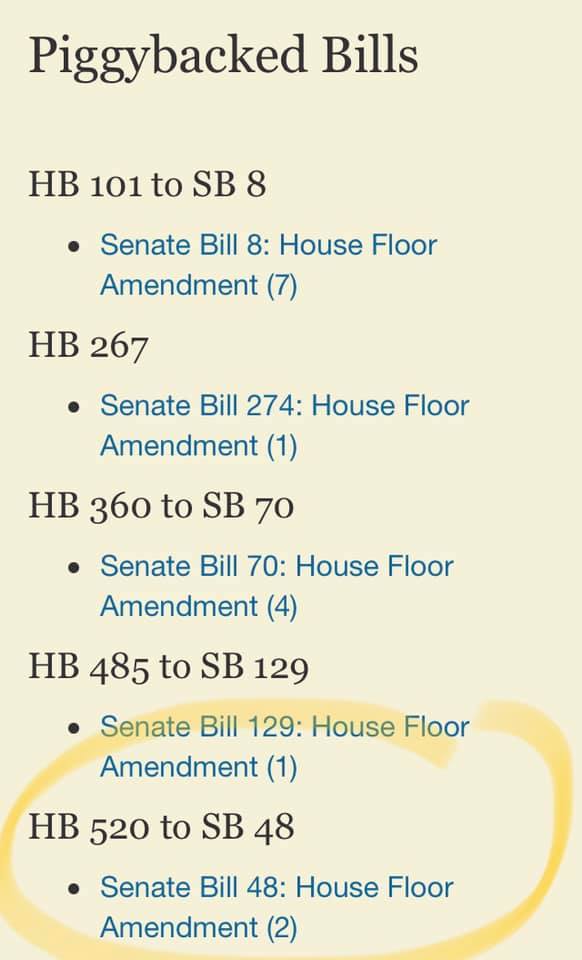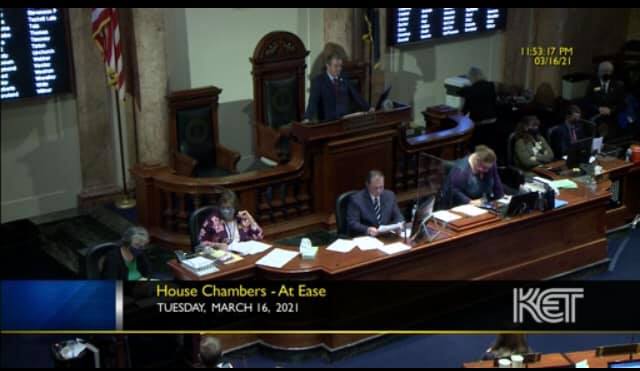

Did lawmakers deal the open records law another blow in the final minutes of March 16?
"At 11:52 pm on Tuesday night, the House of Representatives concluded a marathon session with the reading of floor amendments. Among them, the clerk read "SB 48 House Floor Amendment 2, Representative Blanton."
https://ket.org/share/legislature/archives/?nola=WGAOS+022182&stream=aH…
A few of us had waited all day for that brief announcement.
Early on Tuesday we learned that, sometime that day, Blanton was expected to file portions of his stalled HB 520 — which the House Judiciary Committee had rejected as a committee sub to SB 48 on Monday — as a floor amendment to SB 48.
Lawmakers describe this as a piggyback amendment
The backstory is a convoluted one of legislative machinations.
Suffice it to say that SB 48, sponsored by Sen. Danny Carroll, was on the road to final passage. It is a dramatically scaled back version of his 2019 SB 193 — a bill that bore many of the earmarks of Blanton's HB 520.
https://apps.legislature.ky.gov/recorddocuments/bill/19RS/sb193/orig_bi…
https://www.facebook.com/groups/24094764643/permalink/10157366065834644/
2019's SB 193, as well as SB 48 and HB 520, are all prompted by a belief that particular groups of public officers are at greater risk from assailants who obtain information through public records that can be used to identify, locate, and do harm to them.
It ignores the fact that much of the information is widely available on the internet — not just on public facing agency websites. It also ignores the fact that an assailant is unlikely to use the open records law — requiring him to identify himself and provide contact information — to obtain information in furtherance of his criminal scheme.
Be that as it may, Carroll's current SB 48 is facially innocuous — creating a new exception to the open records law for "personally identifiable information in records that would reveal the address or location of a public officer if that officer has notified the public agency responsible for those records that he or she does not want the information to be made public." It was on its way to final passage.
https://apps.legislature.ky.gov/recorddocuments/bill/21RS/sb48/bill.pdf
Blanton's HB 520 — an even more aggressive version of his earlier bill and now House Floor Amendment 2 to SB 48 — had stalled. It is, in the words of Kentucky Press Association Genera Counsel Michael Abate, "the broadest and most unconstitutional restriction on Freedom of the Press we have ever seen in this state or perhaps any state."
https://apps.legislature.ky.gov/record/21rs/sb48.html#HFA2
Abate points out a multitude of problems Blanton's "amendment" raises in his testimony to the House Judiciary Committee meeting beginning at time stamp 32:50.
https://ket.org/share/legislature/archives/?nola=WGAOS+022175&stream=aH…
Chief among them is the fact that the bill exposes news gathering organizations both inside Kentucky and outside Kentucky to civil and criminal penalties for publishing any article that contains information that identifies, or could reasonably be used to identify, public official/employees including Governor Beshear (a former Attorney General) and any police officer.
Additionally, the "amendment" requires news gathering organizations, as well as public agencies, to preemptively "scrub" identifying information from their records. Within the constraints of time, Abate reeled off multiple concerns, concluding that Blanton's bill "trods on the First Amendment."
Lawmakers were sufficiently convinced to hit the pause button — voting only SB 48, without the Blanton sub, out of committee.
But lawmakers demonstrated a clear appetite for legislation aimed at protecting public officers from dangers erroneously — in our view — linked to the open records law.
The privacy exception to that law, — as we have often pointed out — already protects personal informal about public officials and employees from disclosure. The rest — to paraphrase Abate — is facially unconstitutional and an administrative nightmare.
It appears that lawmakers may have tried to deal the open records law another blow in the final minutes of March 16.
But those efforts will likely fail. If lawmakers give final passage to SB 48, with Floor Amendment 2, when they return on March 29, the Governor is apt to veto it and that veto cannot be overridden.
Because their understanding of the open records law is limited, at best, and they have erroneously scapegoated the law, lawmakers are certain to persist in these efforts in next year's session.


